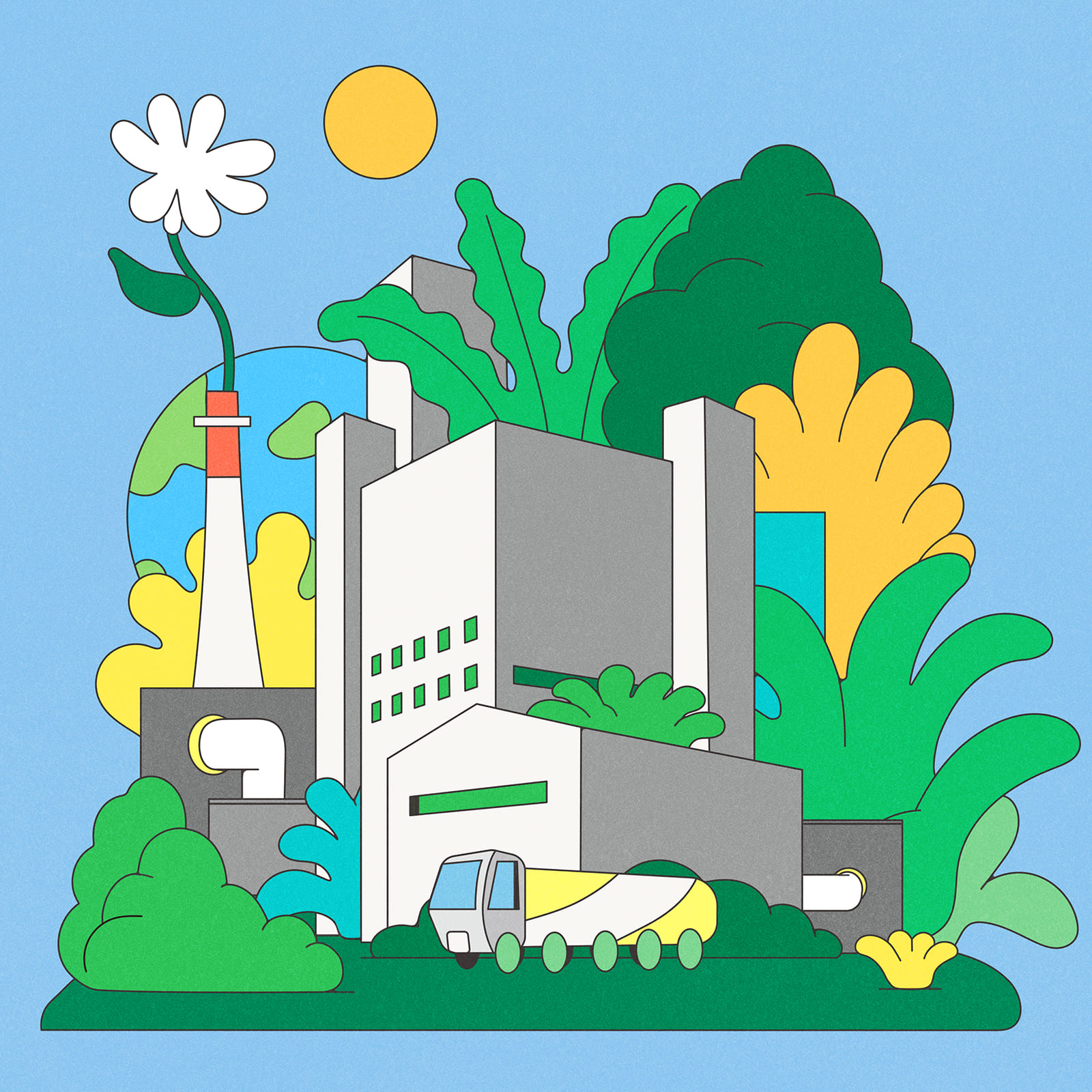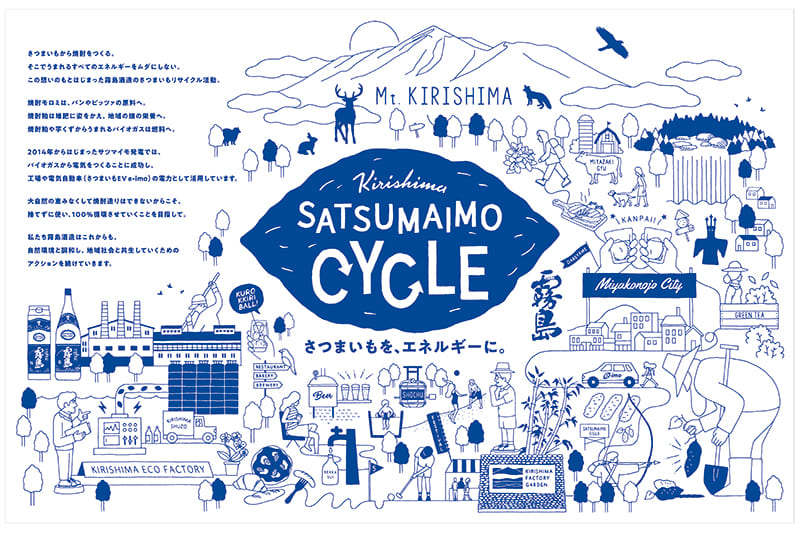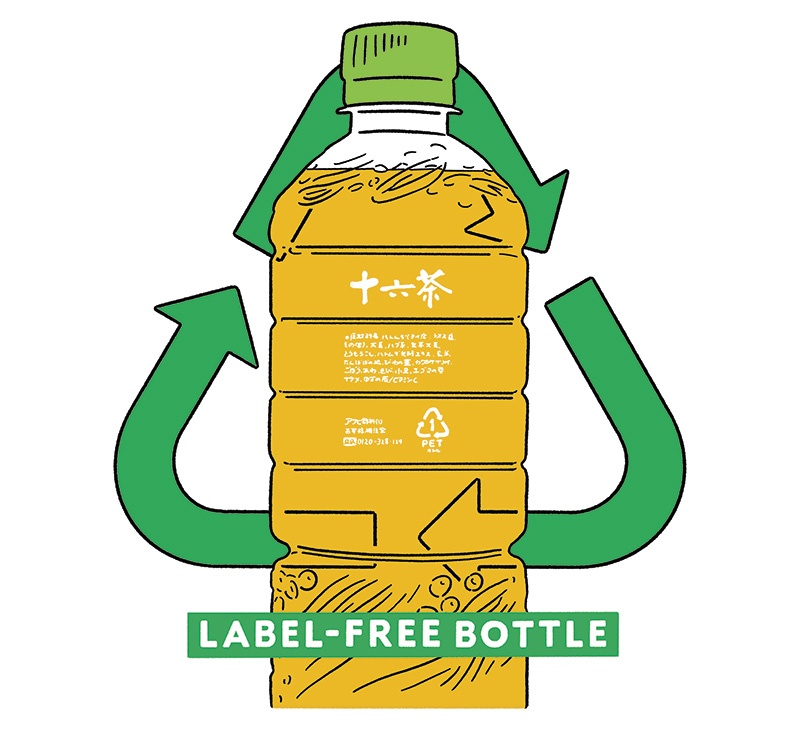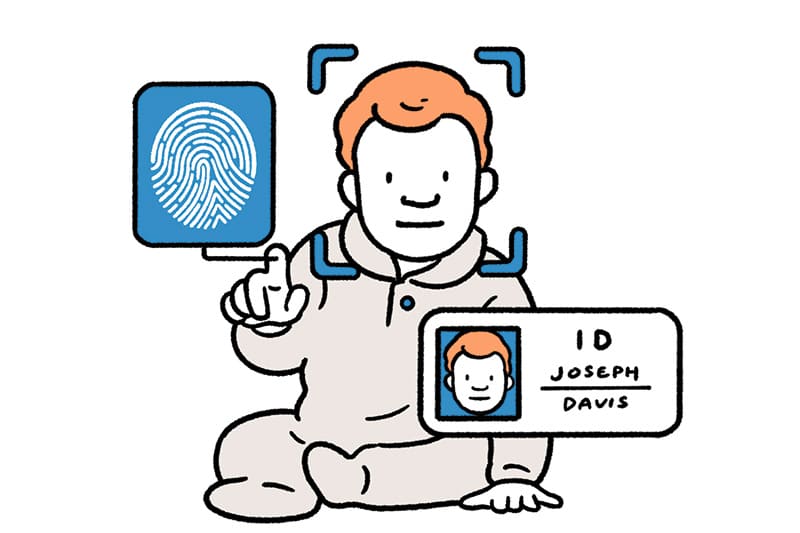July 28, 2023
Omron helping firms achieve carbon neutrality
VOL. 8: Omron Corp.
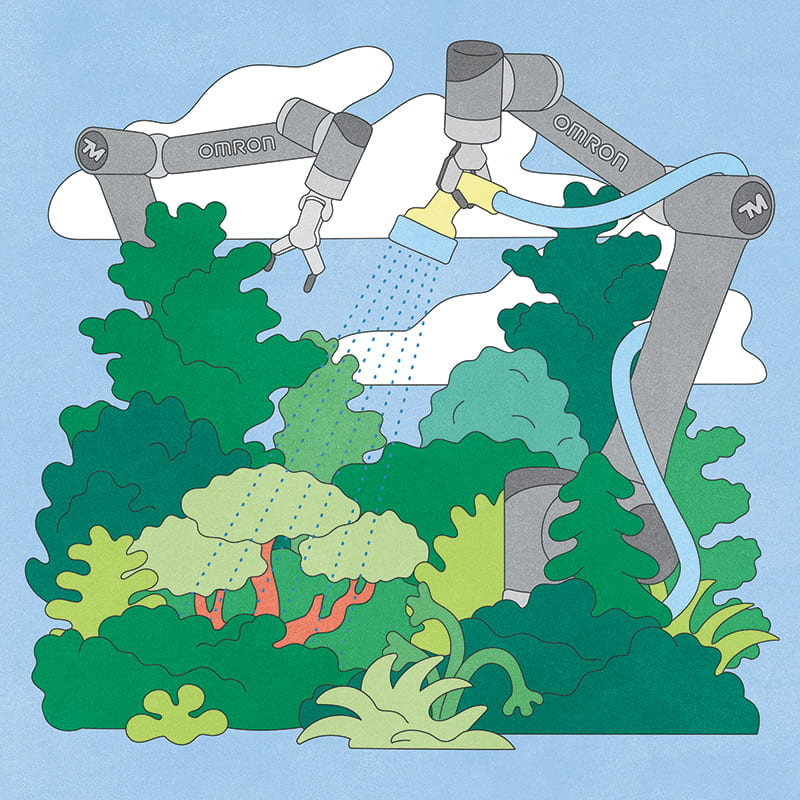
Omron’s strong points
1. Awarded double A’s by CDP on climate change and water security in 2022
2. Pledged to increase the portion of sales from activities contributing to resolving sustainability issues to 45% by fiscal 2024
3. Helps customer companies achieve carbon neutrality with services that improve efficiency of factory automation systems
4. Developed services supporting prevention of diseases using health devices, including blood pressure monitors, and data
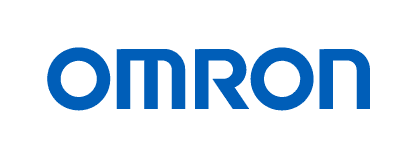
Omron Corp., a long-established Japanese company, marks the 90th anniversary of its establishment this year. It is generally known in Japan as a maker of medical devices, including blood pressure monitors and electronic thermometers.
However, its main business is in factory automation, developing industrial robots and automated control systems. It is a major player — in fiscal year 2022, which ended in March, equipment for factory automation represented 55% of its sales. The stock market classifies Omron in the industrial electronics sector.
It is not widely known that, with its innovative electronic devices, Omron also has played a pioneering role in efforts to resolve social issues and instigate changes.
During the past era of rapid economic growth in Japan, many social issues emerged, including urban population concentration and transportation congestion. Omron developed traffic signal systems and ticket vending machines, among others, laying the groundwork for Japan’s transportation systems to develop. Omron was the first company in the world to produce a system for vehicle detection and signal control and also an automated ticket gate that could process both regular train tickets and commuter passes.
The company later led Japan’s efforts to transition to an information society by delivering the world’s first online automated cash dispenser to the central branch of Mitsubishi Bank in 1971 and developing the world’s fastest fuzzy logic-based computer controller in 1987.
Today, Omron is working to contribute to efforts to achieve sustainability, a societywide goal, through its core business.
Double A’s from CDP
By any objective measure, Omron is a leading sustainability-oriented company.
In the 2022 survey by CDP, an international nonprofit formerly known as the Carbon Disclosure Project, Omron was given an A, the highest score, in the two areas of climate change and water security.
The annual survey covered 18,700 companies with high market capitalization around the world. The number of participating Japanese companies exceeded 1,700, but only Omron and 17 other companies were given A scores in both climate change and water security. Furthermore, Omron was the only industrial electronics company that made the A list.
The company has also been rated highly in key indexes related to environmental, social and corporate governance (ESG) issues. In 2022, Omron was listed for the sixth straight year on the globally recognized Dow Jones Sustainability World Index. Of the 3,560 globally prominent companies evaluated, 332 were selected for the DJSI World. Among these, Omron scored in the top 3% in its industry.
Omron was given an even higher rating by France’s EcoVadis, which comprehensively surveys the corporate social responsibility activities of more than 100,000 businesses and other entities across 200 industries in 175 countries. In the results announced in December 2022, Omron was awarded a platinum rating, meaning it was within the top 1% of the companies surveyed in its industry.
These are proof that Omron is acknowledged by the world as committed to protecting the environment and human rights in its business. However, its sustainability-minded activities go beyond efforts for its own corporate social responsibility and carbon neutrality.
The company’s core business operation is now trying to powerfully drive efforts of its customer companies to achieve carbon neutrality.
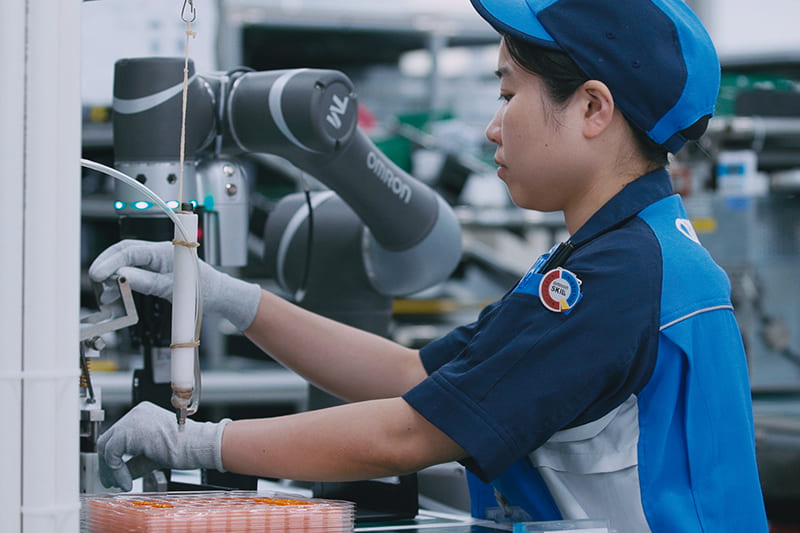
© OMRON CORPORATION
Long-term pledges
In its long-term vision released in 2022, “Shaping the Future 2030,” Omron set five “material sustainability issues” for the first time. One is “resolving social issues through our business,” for which Omron pledged to work to contribute to the “achievement of carbon neutrality,” “realization of a digital society” and “extension of healthy life expectancies.”
In addition, it set a target of increasing “sustainability-related sales” by 45% by the end of fiscal 2024 from the 2021 level.
For a company to commit to reducing greenhouse gas emissions or plastic waste is common, but committing to such a sustainability-related sales target is not.
“The corporate philosophy that calls for our core business to contribute to achieving sustainability prompted Omron to take action,” said Tsutomu Igaki, Omron’s managing executive officer in charge of sustainability, brand, stakeholder engagement and communications (see article in box).
Its mainstay factory automation equipment business, which promotes the realization of carbon neutrality, is no doubt the area with the greatest impact and deserves attention.
Helping improve productivity
Omron targets cutting greenhouse gas emissions in its operations by 65% by 2030 and 100% by 2050. The company, however, has chosen not to state whether it also aims to reduce indirect Scope 3 emissions in its supply chains by 100%, as this involves many uncertainties.
Omron’s efforts toward carbon neutrality do not stop there. In addition to working to reduce greenhouse gas emissions from its operations, it is also putting effort into helping customers and society achieve carbon neutrality through its products and services.
Omron’s factory automation-related equipment, including sensors, industrial robots, control systems and safety devices, is supplied to more than 40 countries and regions.
In 2016, the company began providing a solution package that achieves automation at a higher level — dubbed innovative-Automation! — by combining items that were previously sold separately, including equipment, components and software. It comprises about 290 applications, including high-speed picking and delivering of components using robots and gluing together panels with high levels of precision.
Furthermore, in 2017, Omron launched the i-BELT service, which helps introduce reforms to the production floor by combining real-time data from sensors and equipment together with the customer’s know-how. In 2022, the company also introduced reinforcement measures to speed up the use of data using artificial intelligence.
The combination of innovative-Automation! and i-BELT can strengthen customer companies’ efforts to achieve carbon neutrality, according to Igaki.
“By combining IoT, AI analysis and data utilization to make every part of a factory ‘visible,’ you can improve quality and increase energy productivity while improving the efficiency of energy consumption required for production,” Igaki said. “That’s exactly what manufacturers should do, what enables manufacturers to break through the shell of energy-saving, which was difficult to achieve just with efforts on the factory floors.”
As a specific example, Igaki pointed to efforts on clean rooms.
Previously, in order to make clean rooms completely free of dust, electricity was consumed without much consideration to cost. However, when innovative-Automation! and i-BELT were used to track the air and operational situations at a factory around the clock, it was found that there were hours in which production and quality were unaffected when the air-conditioning was turned off. Omron has now incorporated this logic into i-BELT.
I-BELT repeats the cycle of monitoring and improving throughout the year. Even if there is a change in a production line, Omron takes pre-emptive measures to prevent malfunctions or defective products, optimizes turning equipment on or off and provides a consulting service to help save energy and improve efficiency. Repeating this helps realize carbon neutrality, Igaki said.
Impact of i-BELT
Now, how strong an impact can be expected?
“Omron has a mainstay plant that manufactures factory automation equipment at the Ayabe factory in Kyoto Prefecture,” Igaki said. “In this factory, energy consumption decreased 15% and energy productivity increased 1.6 times in 10 years even though the output increased by 35%. That outcome convinced us that Omron can help manufacturers double their energy productivity.”
In fact, Omron last year joined the EP100 international initiative for improving energy productivity, under which it pledged to double energy productivity by 2040, relative to a 2016 baseline. Omron is among the four Japanese companies that have joined the initiative, and the only Japanese manufacturer to do so.
A related initiative is RE100, which aims to get businesses to commit to 100% renewable electricity. Although as many as 80 Japanese companies are RE100 members, Omron is not among them. That is because Omron believes priority should be placed on directly reducing greenhouse gas emissions from production activities, rather than switching to renewable energy.
“Shifting to renewable energy is important, of course, but we won’t be able to arrest global warming unless we reduce the gross amount of greenhouse gas emissions from production activities,” Igaki said.
A doubling of energy efficiency is defined as cutting in half the energy required to produce a given output. This has yet to be achieved, but in a project in which Omron worked with Ulvac Inc., a customer that manufactures vacuum equipment, Omron succeeded in reducing the overall power consumption of equipment by 23% thanks to making operations visible with innovative-Automation! and i-BELT and utilizing the data.
Plastic waste
Omron’s efforts to directly contribute to achieving sustainability through its core business are not limited to work related to carbon neutrality. Perfect Sealing, an innovative-Automation! application that the company introduced in 2018, is a revolutionary technology that contributes to reducing plastic waste.
Existing devices that seal thin-film packages for products like snacks were designed for standard plastics. When biodegradable plastics were tried, it often resulted in incomplete sealing. So manufacturers had to slow down the machines to achieve adequate sealing of biodegradable materials, leading to lower productivity and a reluctance to use them.
Omron then successfully developed a set of technologies that enables sealing biodegradable packages as fast and as well as conventional films by using sensors and software to increase the precision of temperature control. This is now used by 350 companies — mainly large international food companies — helping them introduce biodegradable films.
Combining this and i-BELT, Omron can contribute to a reduction in greenhouse gas emissions from customer companies, in addition to reducing their plastic waste.
Furthermore, there is now a possibility that major progress may be made in one of Omron’s material sustainability issues: extending healthy life expectancy.
In February 2022, Omron invested ¥111.8 billion ($800 million) in JMDC Inc., a medical data analysis company, and entered a capital tie-up deal with it. JMDC’s strength lies in its vast database. It has data on health checks on over 10 million people and on doctors’ health insurance claims, and provides services using this data to medical institutions and pharmaceutical companies.
Omron’s share of the global market for blood pressure monitors is 50%, and it has sold more than 300 million of them. Devices that are compatible with Omron Connect, a smartphone app that enables the monitoring of vital data, including pulse and blood pressure, have been increasing.
The aim of the two companies is to realize an unparalleled health care platform by combining JMDC’s big data and Omron’s vital data. Such a platform, if realized, has the potential to become a revolutionary one that can contribute to extending the human life span.
For example, it may help make new discoveries or develop new drugs through its capabilities for analyzing data to find out how effective various drugs have been against a wide range of attributes, including symptoms, regions and gender. It may also enable a preventive diagnostic service that conducts analyses by combining measurements from blood pressure monitors and JMDC’s big data.
“What we want to do is to find ways to prevent wide-ranging cardiovascular disorders, including strokes and heart attacks,” Igaki said. “Going forward, we hope to create new value by working with wide-ranging partners.”
The idea of combining blood pressure monitors and services in order to create innovations that contribute to the betterment of society and the human race is parallel to the earlier-discussed idea of combining factory automation equipment and services to promote carbon neutrality.
Omron’s work to contribute to achieving sustainability through its core business will no doubt serve as an example for other major companies across the world.
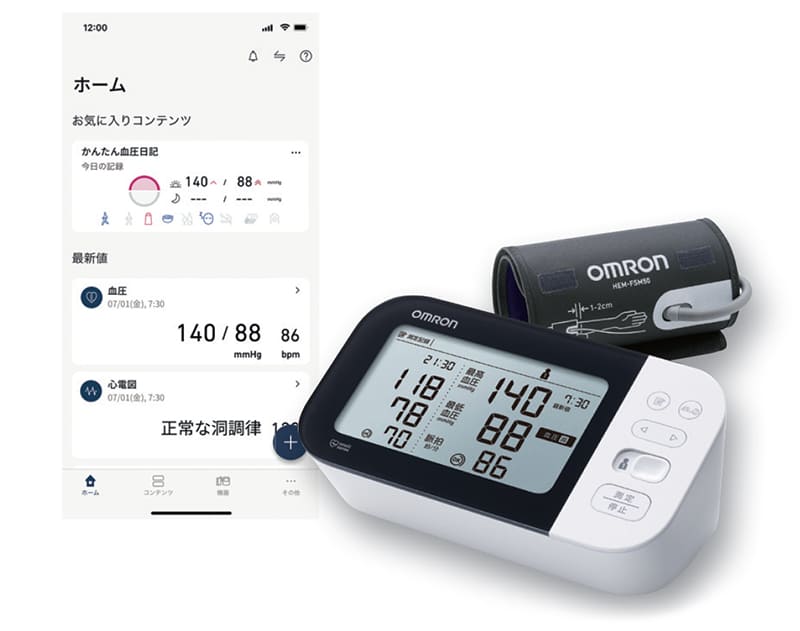
© OMRON CORPORATION
Sustainability is fundamental purpose of Omron
Tsutomu Igaki
Managing Executive Officer
Sustainability, Brand, Stakeholder Engagement & Communications Omron Corp.
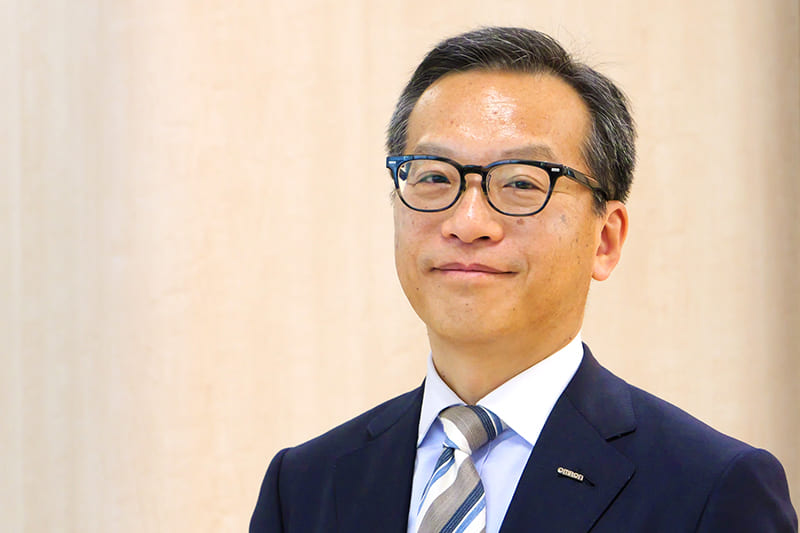
I believe, for us, sustainability is precisely the fundamental purpose of Omron. That is because our efforts on sustainability are directly related to practicing our corporate principle.
Our starting point is our mission statement, established by founder Kazuma Tateishi in 1959. The words that our founder set out in “Our Mission,” Omron’s corporate principle, were “to improve lives and contribute to a better society.”
Since “Our Mission” was established in 1959, Omron has kept trying to find ways to solve society’s issues using our technologies and find ways for us to grow. The idea that contributing to achieving sustainability for Japanese society and the world will lead to sustainability for our company, to restate it in words used today, has not changed since our establishment.
And in order to incorporate this corporate philosophy and management stance in specific business operations and increase their feasibility, we have entered a new phase.
In “Shaping the Future 2030,” our long-term vision announced in 2022, we established three social issues that we should address — “achievement of carbon neutrality,” “realization of a digital society” and “extension of healthy life expectancies” — and pledged to increase sales from activities that contribute to enhancing sustainability by 45% in four business segments by fiscal 2024.
When this pledge was proposed, it caused controversy in the company. Once the pledge was made, we would be monitored by the stock market on whether we were living up to expectations. But we were able to overcome the pressure precisely because our ultimate goal is to improve our corporate value.
Things that have been expressed in words only may end up being pie in the sky. I don’t think the capital market will take our messages seriously unless we can explain the logic or scenario for how a solution to an issue will lead to Omron’s growth over the next decade.
If we say something at all, we must back it up with facts, and it is all too natural for us to be checked by the market. So we decided we should change our stance and try to regard pressure as expectations for us and live up to them.
We are proud that a company like ours, which incorporates efforts for sustainability in business operations and plans to the degree we do, is uncommon. If you ask me how we can be so serious, the only answer is, “This is our fundamental purpose,” as I said at the beginning.
If we turned our back on efforts to resolve social issues, we would cease to be Omron. That is the extent of the commitment we aim to maintain as we work toward a better society.
FA事業で企業のカーボンニュートラルを推進。
2023年、創業から90周年を迎える老舗のオムロン。同社には革新的な電子機器で社会的課題の解決をリードしてきた歴史がある。そして今、「サステナビリティへの対応」という社会的課題に、本業であるFA機器事業を通じて貢献しようと挑んでいる。
自社拠点でのGHG削減と同時に、自社商品・サービスの提供を通じた顧客や社会に対するカーボンニュートラルの推進にも注力している。FA機器のアプリケーション群「i-Automation」や製造現場の革新を進めるサービス「i-BELT」との組み合わせで、工場のすべてを“見える化”。エネルギー効率を上げながら品質も向上させ、「エネルギー生産性」を高めることが可能になるという。
オムロンのサステナビリティへの直接貢献は、これにとどまらない。i-Automation!のアプリケーション「パーフェクトシーリング」は、プラスチックごみの削減にも寄与する画期的なもの。さらに、健康寿命の延伸という、オムロンが掲げるサステナビリティ重要課題においても、大きな進展が見られる可能性が出てきた。
Return to Sustainable Japan Magazine Vol. 26 article list page

